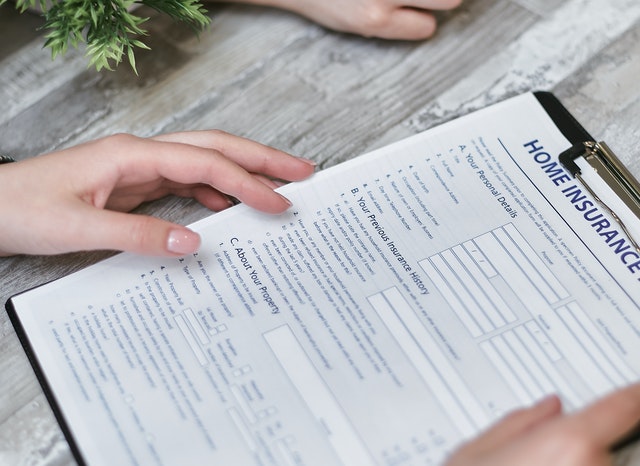Buying a property is one of the most significant purchases anyone will make in their lifetime, so it is crucial to make an informed decision based on knowledge and facts.
It’s best to consider several important aspects when buying a property: your budget, savings, credit score, home insurance, and much more to improve a successful home buying experience.
Buying a home is more than an investment; it forms part of the safety net essential to living well and having a place you can call your own.
According to Statista, “The homeownership rate among Americans under 35 years was 37.8 percent in the second quarter of 2021. In contrast, almost 80 percent of those aged 65 and older owned their home.” To improve that percentage among millennials, a comprehensive and practical plan will be necessary to prepare first-time homebuyers for a mortgage and create a feasible long-term commitment to homeownership.
This is why we reached out to the experts to discover what they had to say, from homeowners insurance to tips on settling into your new home. Here we’ll explore various aspects regarding homeownership to help turn that dream into a reality, whether you’re looking for a home in your area or looking for a long-distance move, here you can access valuable information with experts. Being organized is key to saving money on a big move! Budgeting can help beyond moving. For example, if you are looking for pools, you may search for above-ground pool ideas on a budget.
To check out the “Mortgage Edition” of this Q&A, please follow this link.
Homebuying Education

Q: What’s homebuyer education and why is it important for people to learn more?
A: A homebuyer education course is an online or in-person class you can take to better understand what’s involved in finding, buying, and owning a home. A potential homebuyer may be required to complete this course by their mortgage lender, or if you’re participating in a down payment assistance or other housing financing program.
The homebuying process is complex and if you are a first-time homebuyer (someone who has never owned a home, or has not owned a primary residence in the last 3 years) it can be a little confusing. This is why homebuyer education courses are so important. They help new homebuyers understand the process and what to anticipate as a homeowner.
Kellie Schmidt | Finance New Orleans
Q: What are some taxes associated with homebuying that a lot of people forget about?
A: Usually, people tend to forget about the Transfer tax on the Deed. In Florida, it is usually between 0.6% 0.7% from the purchase price. For example, if the Home purchase price is $300,000.00 the transfer taxes will be $1,800.00 -$2,100.00
Q: What are the most important credit aspects homebuyers should take into consideration when looking for a home mortgage?
A: There are 2 different ways I can look at your question:
First shopping around for the best interest rate is always a good plan. I have found Credit Unions are a good place to start as they usually service the mortgages in-house and rates tend to be low.
But also getting a copy of your credit report from www.annualcreditreport.com reviewing it for errors, looking at your history, and lowering the amount of usage on credit card debt before shopping for the mortgage is important. Not only to get approval but the better your credit report is the better the interest rates you will get.
Sue Katz | ConsumerCredit
Q: What are the three most important things a first-time homebuyer should know?
- A: It’s really important to have a good team. Make sure you have a real estate agent you trust and work with a good loan officer. The California Housing Finance Agency, for instance, has a list of Preferred Loan Officers who are very familiar with the challenges faced by first-time homebuyers.
- There are many resources for people who have steady incomes but may not have a large amount saved for a down payment. Check state and county resources to see what might be available to help with down payment and closing costs.
- There is free counseling available to help you through the process. You can call 800-569-4287 to find a HUD-certified housing counselor near you to get you started.
It may seem like a tough road to find your first home, but the hard work is worth it!
Eric Johnson | Cal HFA
Q: If I face bankruptcy in the future, am I at risk of losing my home?
Q. What ownership expenses do I need to consider when buying a home?
Owning a home is a dream for many, but the financial realities extend beyond down payments and mortgages. Here are a few of the hidden expenses associated with buying a home, along with some insights to ensure you’re well-prepared:
- Maintenance & Repairs: Ongoing expenses for routine upkeep and unforeseen repairs.
- Property Taxes: Annual taxes based on the assessed value of your property.
- HOA & Membership Fees: Fees charged by homeowners associations for maintaining shared amenities and enforcing community rules.
- Utilities: Recurring costs for services like gas, electricity, water, and potentially internet and cable.
- Insurance: Protection for your home against unforeseen events or damage.
- Lawn Care: Costs associated with lawn maintenance, including mowing, landscaping, and general upkeep.
- Home Improvements: Expenses for renovations, upgrades, or remodeling projects.
Buying a home is an exciting milestone, but knowing the hidden costs is important. By budgeting for things like maintenance, utilities, and any unforeseen expenses, you’ll be better prepared to handle the financial aspects of homeownership. It’s important to remember that a well-planned budget is the key to a successful homeownership journey.
Chris | TenantCloud
Insurance and Warranty

Q: What is a home warranty? And what does a home warranty cover?
A: A home warranty is a service contract that covers repairs and replacements on appliances and systems, typically covering a period of one year.
What Does A Home Warranty Cover?
Coverage normally varies based on where you reside. Typical items normally include central heating, air conditioning, kitchen appliances, washer and dryer, plumbing and electrical systems as well as roof leaks. Most of these items are included in the standard plan.
- If a major appliance or system breaks down, the home warranty pays for repairs or in certain cases may even replace the appliance.
- You do not have to go around looking for a technician to repair your damaged appliance. All you have to do is call up your warranty company and pay the deductible amount (usually around $50) and they will send a technician to service the appliance or system.
- If you decide to sell your home, having a home warranty contract adds value to your property. Buyers would rather have an insured home rather than an uninsured one.
- Homeownership is already a very stressful, never-ending process. Having home warranty coverage eases the process a bit, you can rest assured that if an appliance does break down, you would be covered and wouldn’t have to deal with the huge expense of replacement or repair on your own.
Mark Phillips
Q: How should you choose a Home warranty, and why is it important?
A Home Warranty would be protecting all your home appliances and systems against breakdowns, that is the reason why you should always consider this as a great prevention.
There are dozens of providers of this type of service, and it is important to have a Home Warranty contract with a good company taking into account coverage, cost, and service.
Danny Lipford | Today’s Homeowner
Settling in

Q: What are some hidden costs when making a big move that people should take into consideration?
A: If you’ve got a big move coming up, such as a long-distance move, there are fees other than the costs of the move itself to be considered. Among others, you should consider the following potential short term and longer-term fees:
- Additional movers’ hours if you are not properly prepared on moving day.
- Applicable fees when changing your driver’s license if you’re moving out of state.
- Disconnecting and connecting all your residential services.
- Insurance premium costs may increase (or decrease) based on your new location.
- Interest payments if you used debt to pay for your move.
- Being organized is key to saving money on a big move!
Jasmine Mainguy | MovingWaldo
Real Estate

Q: What are important qualities a homebuyer should look for in a real estate agent?
A: The two most important qualities in a real estate agent are trustworthiness and experience. You need someone to point out the negatives when looking at a property and guide you through the process. An experienced agent who can be trusted will give you confidence that you’re working with someone who is looking out for your best interests and not their commission check.
Joseph Alongi | SoldNest
With the proper knowledge and planning, you can become a homeowner and invest money in your property while increasing your asset portfolio. A responsible purchase will help get your budget in check to hopefully avoid needing a mortgage refinance.
Renting a property can seem like throwing money down the drain the same if you are not careful with property tax, so why not invest it instead and build a safe haven that you can call your own.




